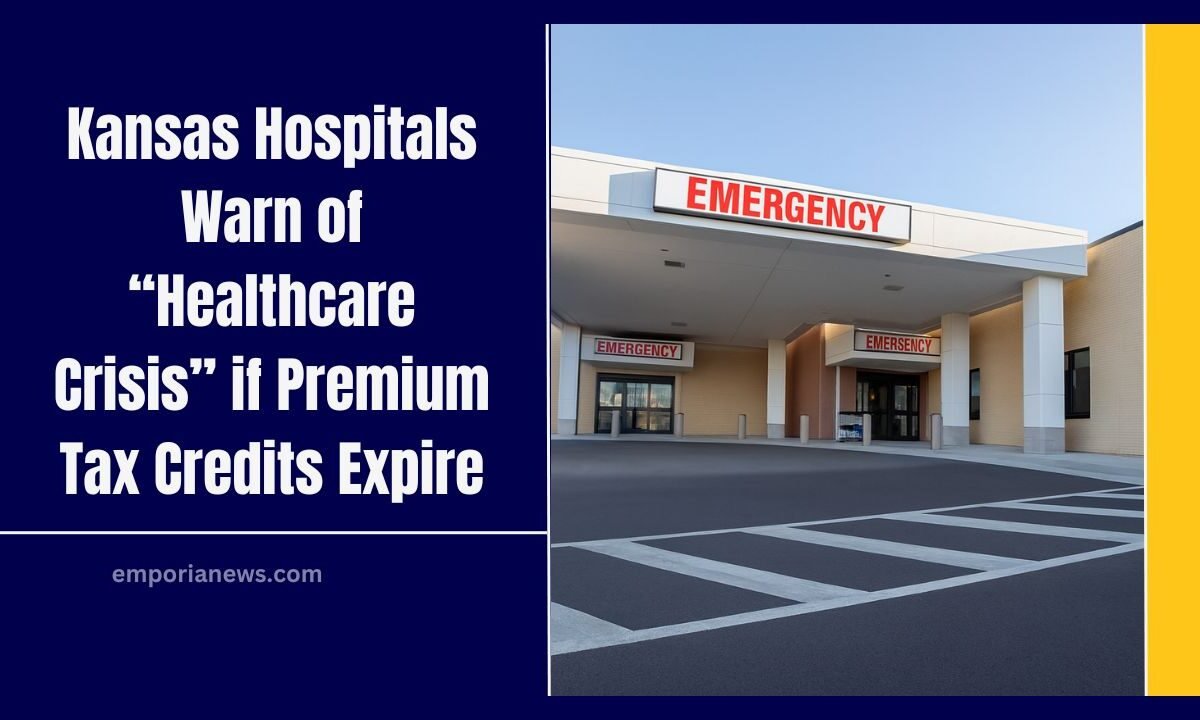Kansas hospitals are urgently pressing lawmakers to extend enhanced premium tax credits that are scheduled to expire at the end of 2025.
With over 160,000 Kansans relying on these credits to keep health insurance affordable, hospital leaders warn that letting them lapse could thrust the state into a full-blown healthcare crisis.
What Are Enhanced Premium Tax Credits?
These tax credits, rolled out in 2021 under provisions of the Affordable Care Act, lower monthly health insurance premiums for qualified individuals and families purchasing coverage through marketplace exchanges. Because they reduce cost burdens, they play a key role in keeping insurance accessible for thousands.
In Kansas, hospital and health system officials say the credits currently support coverage for more than 160,000 residents. Without them, many households would face substantial premium increases or lose coverage entirely.
What’s at Risk if Credits Expire?
Kansas healthcare leaders describe a cascade of negative effects if Congress fails to act:
- Loss of Coverage: Fewer Kansans will afford premiums, driving up the uninsured rate.
- Delayed or Forgone Care: Those without insurance often skip preventative services and delay care for chronic illnesses like diabetes, heart disease, and kidney conditions.
- Strain on Hospitals: More uncompensated care, particularly in rural areas, threatening financial stability of many facilities.
- Gaps Between Medicaid and Marketplace: Many who lose marketplace coverage won’t qualify for Medicaid, leaving them with no safety net.
Preston Sauers, CEO of Kingman Healthcare Center, bluntly summed it up: many patients won’t qualify for Medicaid either — so when the tax credit expires, they lose all coverage simultaneously.
Ascension Via Christi’s CEO Kevin Strecker warned that without congressional action, Kansas is headed into a severe healthcare collapse. Newton Medical Center President Vallerie Gleason added that the state’s congressional delegation must elevate this issue this year.
Projected Costs to Families
Experts estimate that the expiration will significantly increase premium burdens:
| Scenario | Estimated Premium Increase | Impact on Families |
|---|---|---|
| Family of four earning ~$64,000 | Up to $2,500+ annually | Severe disproportionate burden |
| Older couple (age 60) | Over $18,000 increase | Could push coverage out of reach |
| Increase in uninsured | Uninsured rate could rise by ~32% | Exponential strain on system |
These increases reflect both the loss of subsidy and broader market adjustments in premiums, as insurers attempt to offset lower participation and higher risk pools.
What’s Being Done Now
Hospitals and health systems have banded together to urge Kansas’s congressional delegation for swift legislative action. In a joint letter, multiple providers called for a permanent or multi-year extension of the credits beyond 2025.
State health leaders and policy advocates are amplifying messaging, warning of community-level impacts such as hospital closures, diminished emergency access, and higher costs for insured patients.
At the same time, Kansas lawmakers have taken complementary steps: the state recently doubled the Medicaid provider tax rate to 6%, a change supported by many hospitals to boost federal Medicaid reimbursements. That move is viewed as a hedge against insurance market instability.
Political and Policy Hurdles
Extending the credits will require federal legislative action:
- A bill in Congress must be passed before December 31, 2025.
- The extension must earn the president’s signature to take effect prior to the credits sunset.
- The political environment is complicated by broader federal budget negotiations, debates over healthcare funding, and shifting priorities in Washington.
State officials, including Governor Laura Kelly, are speaking publicly about the “disastrous effects” of letting credits expire, urging bipartisan cooperation to preserve coverage for Kansans.
The push from Kansas hospitals to extend enhanced premium tax credits comes not merely from self-interest, but from fear of a wave of uninsured people, collapsing rural hospitals, and a destabilized health coverage system.
Without action, the collapse of these subsidies could trigger a healthcare crisis across Kansas. This battle will come down to whether Congress acts in time to save coverage for hundreds of thousands of families and prevent the ripple effects of lost care, higher costs, and overwhelmed providers.




